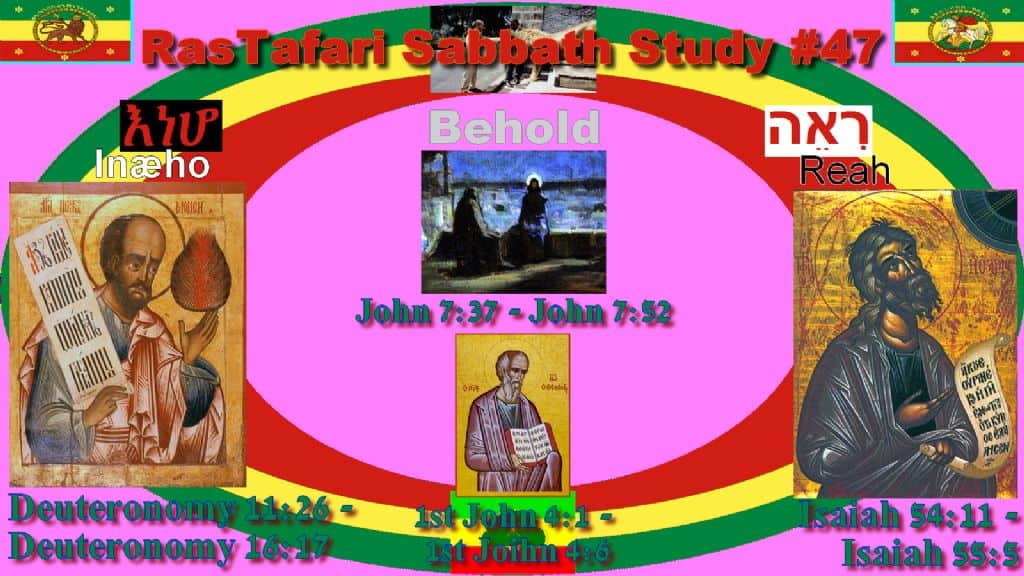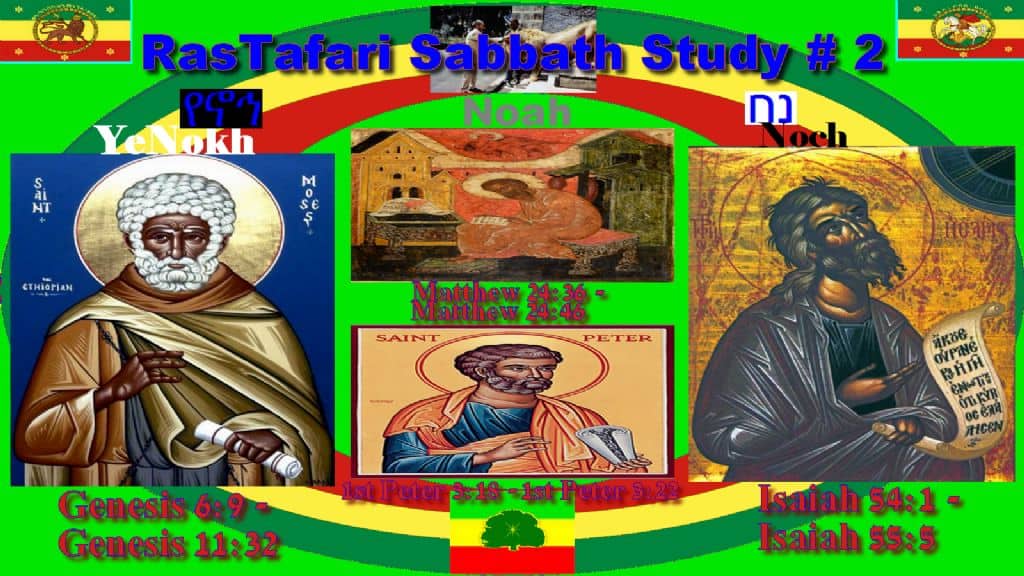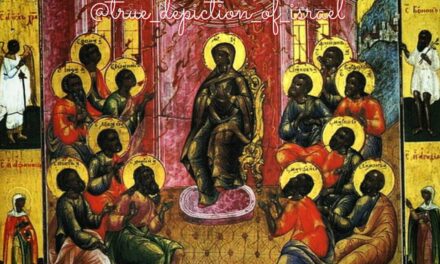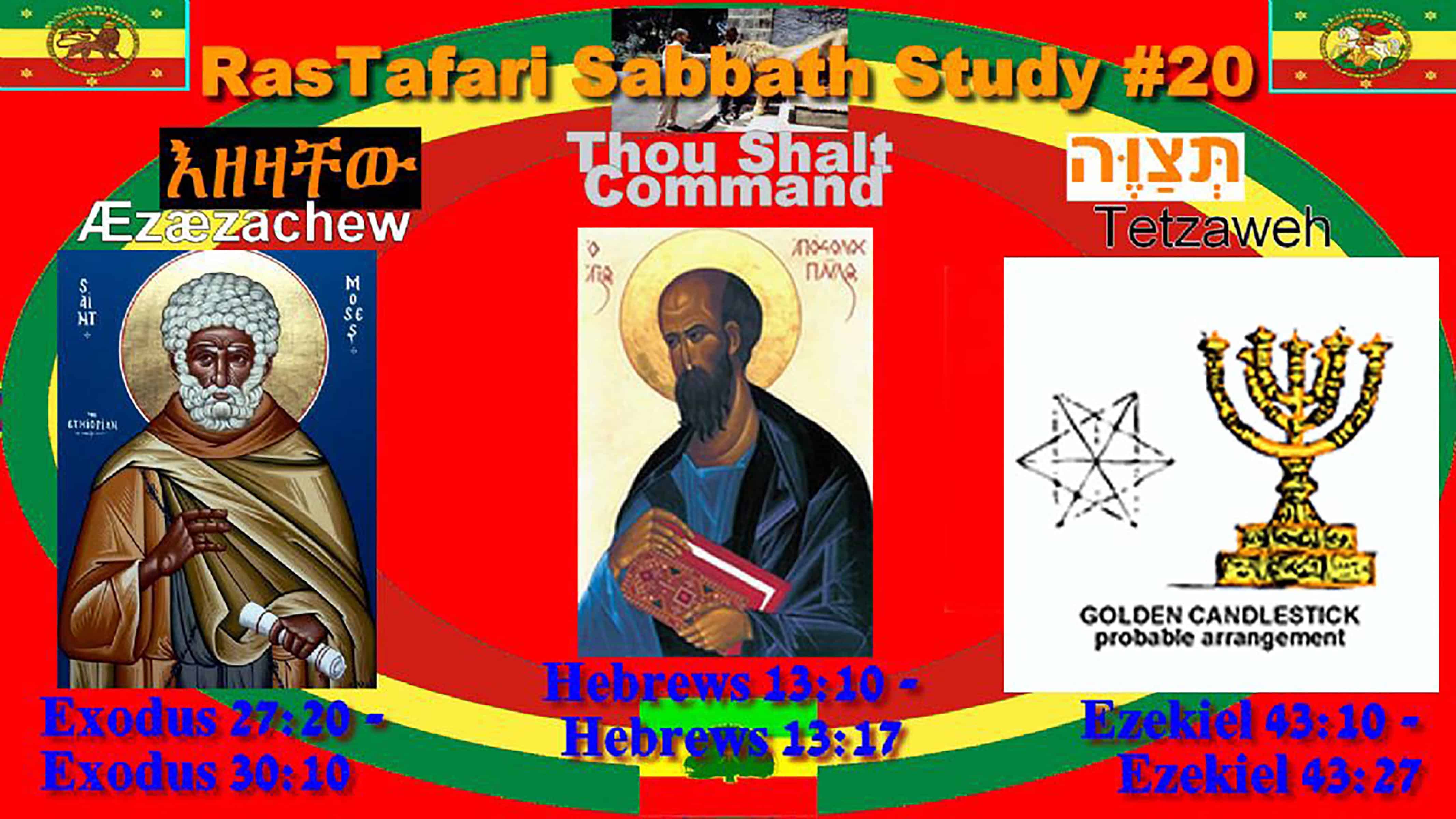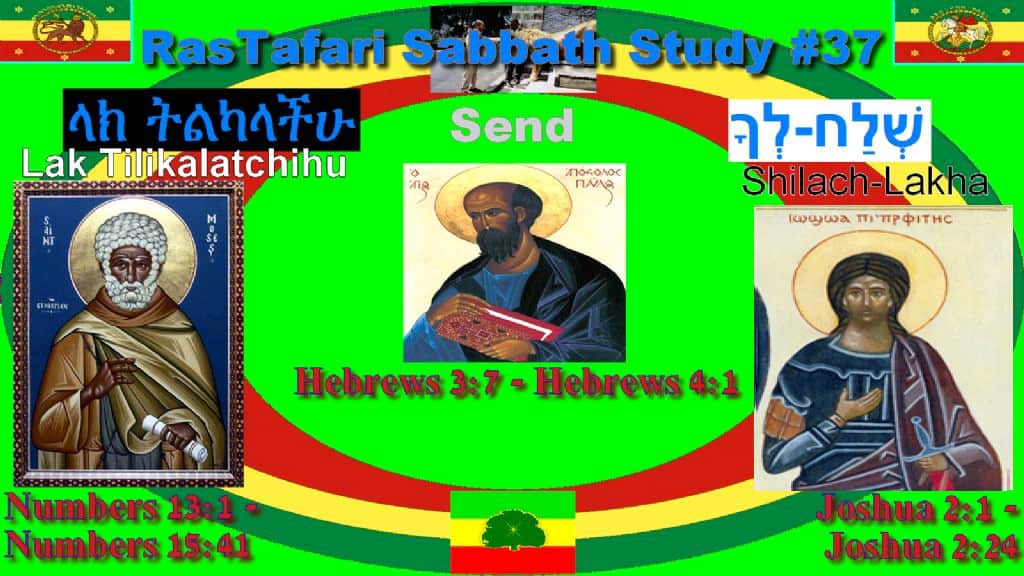This Week's Portion #47
Re'eh | ראה | "See!" እነሆ | Ineho
*For a PDF version of All the Torah Portions Schedule, click here to download!
1. Torah Reading
2. Prophets Reading
Isaiah 54:11-55:5
3. New Testament Reading
John 7:37-52
Portion Outline - TORAH
- Deuteronomy 12:1 | Pagan Shrines to Be Destroyed
- Deuteronomy 12:13 | A Prescribed Place of Worship
- Deuteronomy 12:29 | Warning against Idolatry
- Deuteronomy 14:1 | Pagan Practices Forbidden
- Deuteronomy 14:3 | Clean and Unclean Foods
- Deuteronomy 14:22 | Regulations concerning Tithes
- Deuteronomy 15:1 | Laws concerning the Sabbatical Year
- Deuteronomy 15:19 | The Firstborn of Livestock
- Deuteronomy 16:1 | The Passover Reviewed
- Deuteronomy 16:9 | The Festival of Weeks Reviewed
- Deuteronomy 16:13 | The Festival of Booths Reviewed
Portion Outline - PROPHETS
- Isaiah 54:1 | The Eternal Covenant of Peace
- Isaiah 55:1 | An Invitation to Abundant Life
Portion Study Book Download & Summary
 DEVARIM Hebrew Book of Deuterronomy - Torah Portion Vol.5 (FREE PDF)
DEVARIM Hebrew Book of Deuterronomy - Torah Portion Vol.5 (FREE PDF)
Portion Commentary
Giving to the Poor
Thought for the Week:
You shall not hesitate to give, nor murmur when you do give; because you shall know who is the good repayer of the hire. You shall not turn away from him that is in want, but you shall share all things with your brother, and shall not say that they are your own; for if you are partakers in that which is immortal, how much more in things which are mortal? (Didache 4:7-8)
Commentary:
You shall generously give to him, and your heart shall not be grieved when you give to him, because for this thing the LORD your God will bless you in all your work and in all your undertakings. (Deuteronomy 15:10)
The Torah commands us to give generously to the poor. "You shall freely open your hand to your brother, to your needy and poor in your land" (Deuteronomy 15:11). The Master taught frequently about giving to the poor and encouraged His followers to do so lavishly. Believers should be distinguished as the most generous people on earth. When Paul received permission from the apostles to take the gospel to the Gentiles, the apostles gave him only one stipulation. They asked him to teach the Gentiles "to remember the poor" (Genesis 2:10).
When we give to the poor, we should do so with a glad heart. The Torah says, "Your heart shall not be grieved when you give to [the poor man]," (Deuteronomy 15:10). That is why Paul says, "Each one must do just as he has purposed in his heart, not grudgingly or under compulsion, for God loves a cheerful giver" (2 Corinthians 9:7).
The rabbis taught, "The poor man does more for the giver than the giver does for the poor man." 1 Why? Because, as Deuteronomy 15:10 says, if you give generously to the poor, "the LORD your God will bless you in all your work and in all your undertakings" (Deuteronomy 15:10). The person who gives to the poor man seems to be doing the poor man a favor, but he is actually receiving the gift of God's blessing from the poor man.
A person who refuses to give to the poor forgets that he himself depends on the generosity of God. If we refuse to be generous when we see others in need, why should God help us when we are in need?
Yeshua refers to giving to the poor as storing up treasure in heaven. 2 Money spent on charity should be regarded as an investment. A wise investor does not hesitate to put his money into a venture that will guarantee a good return.
Endnotes: 1. Leviticus Rabbah 34:8. 2. Matthew 19:21. 3. Chana Nestlebaum, Chofetz Chaim, Loving Kindness: Daily Lessons in the Power of Giving.

